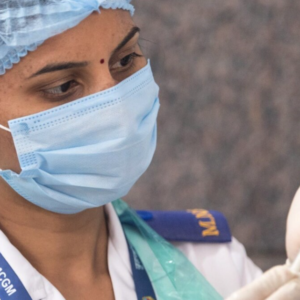The Growing Threat of Fungal Infections
Fungal infections have become a significant concern in recent years, posing a growing threat to public health. These infections, caused by various types of fungi, can affect different parts of the body and lead to a range of symptoms and complications. With the rise in global travel, climate change, and the overuse of antibiotics, the incidence of fungal infections is on the rise.
Types of Fungal Infections
There are several types of fungal infections that can affect humans. Some of the most common ones include:
- 1. Candidiasis: This is a common fungal infection caused by the Candida fungus. It can affect the skin, mouth, throat, and genital area.
- 2. Ringworm: Also known as tinea corporis, ringworm is a highly contagious infection that affects the skin, scalp, and nails. It is caused by various species of fungi.
- 3. Athlete’s Foot: This is a fungal infection that primarily affects the feet. It is commonly found in warm and moist environments such as locker rooms and swimming pools.
- 4. Aspergillosis: This is a serious infection caused by the Aspergillus fungus. It can affect the lungs, sinuses, and other organs, particularly in individuals with weakened immune systems.
- 5. Cryptococcosis: This infection is caused by the Cryptococcus fungus and primarily affects individuals with compromised immune systems, such as those with HIV/AIDS.
Factors Contributing to the Rise of Fungal Infections
Several factors have contributed to the increasing prevalence of fungal infections:
- 1. Global Travel: With the ease of international travel, fungal infections can now spread more easily across borders. People can unknowingly carry fungal spores from one region to another, leading to the introduction of new fungal strains in different areas.
- 2. Climate Change: Changes in climate patterns, such as increased temperatures and humidity, create favorable conditions for fungal growth. This can result in the proliferation of fungi in both indoor and outdoor environments.
- 3. Antibiotic Overuse: The overuse and misuse of antibiotics have led to the emergence of drug-resistant fungal strains. When antibiotics kill off beneficial bacteria, it can disrupt the natural balance of microorganisms in the body, making it easier for fungi to thrive.
- 4. Weakened Immune Systems: Individuals with weakened immune systems, such as those with HIV/AIDS, cancer, or undergoing organ transplantation, are more susceptible to fungal infections. These conditions compromise the body’s ability to fight off fungal pathogens effectively.
- 5. Aging Population: As the global population ages, the incidence of fungal infections is expected to rise. Older adults often have weakened immune systems and are more prone to developing infections.
Prevention and Treatment
Preventing fungal infections involves adopting good personal hygiene practices and taking precautions in certain environments. Some preventive measures include:
- 1. Keeping the skin clean and dry: Fungi thrive in warm and moist environments, so it’s important to keep the skin clean and dry, especially in areas prone to sweating.
- 2. Avoiding sharing personal items: Sharing items such as towels, clothing, and footwear can increase the risk of spreading fungal infections. It’s essential to use personal items and avoid sharing them with others.
- 3. Wearing breathable footwear: Wearing breathable shoes and socks can help prevent conditions like athlete’s foot, as they allow for better air circulation and reduce moisture.
- 4. Practicing safe sex: Using barrier methods, such as condoms, during sexual activity can help reduce the risk of sexually transmitted fungal infections.
- 5. Seeking prompt medical attention: If you suspect a fungal infection, it’s important to seek medical attention promptly. Early diagnosis and treatment can help prevent the infection from spreading and causing complications.
Treatment for fungal infections may vary depending on the type and severity of the infection. Antifungal medications, both topical and oral, are commonly prescribed to eliminate the fungal pathogens. In some cases, lifestyle changes and addressing underlying health conditions may also be necessary to prevent recurrent infections.
Conclusion
Fungal infections are a growing threat to public health, and their prevalence is on the rise. Understanding the types of fungal infections, the contributing factors, and preventive measures is crucial in combating this threat. By adopting good personal hygiene practices, taking precautions in certain environments, and seeking prompt medical attention, we can reduce the risk of fungal infections and protect our health.





